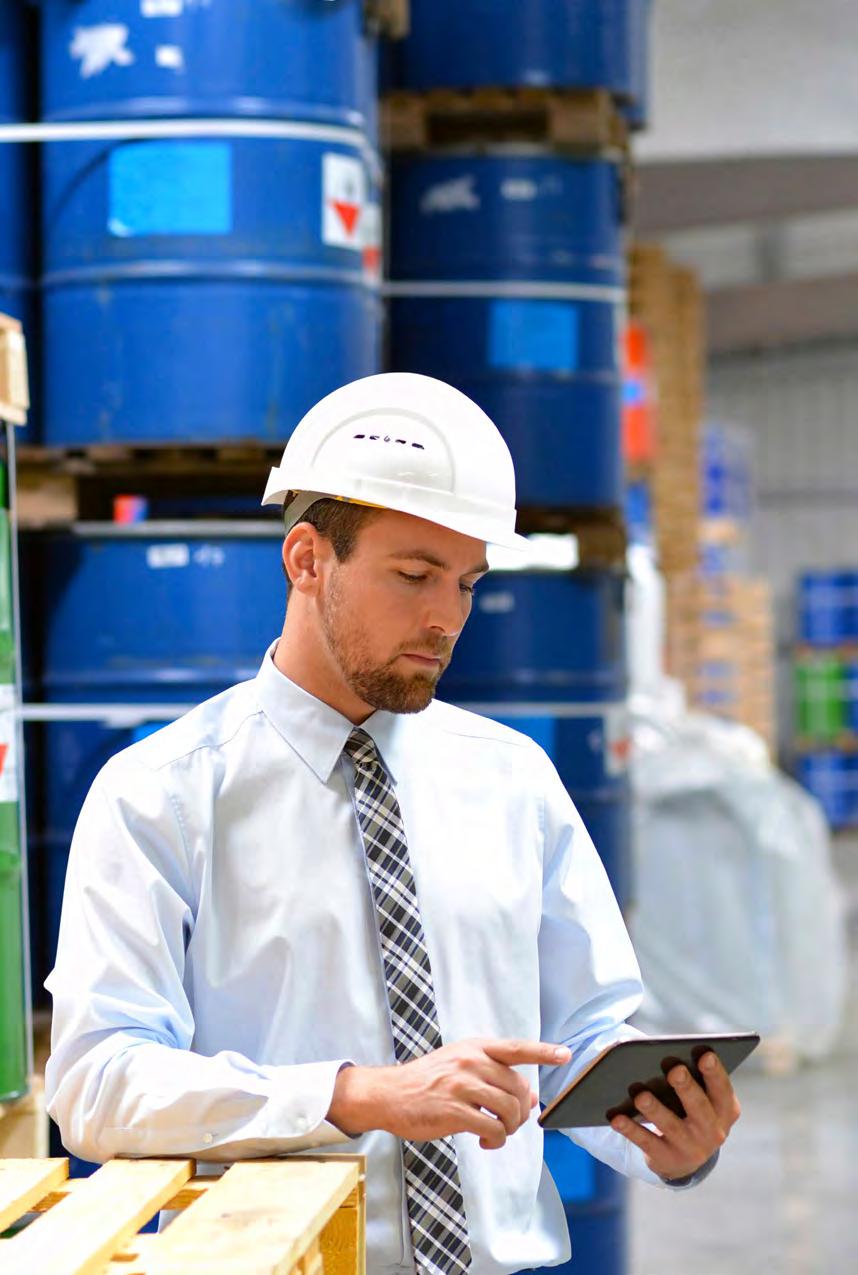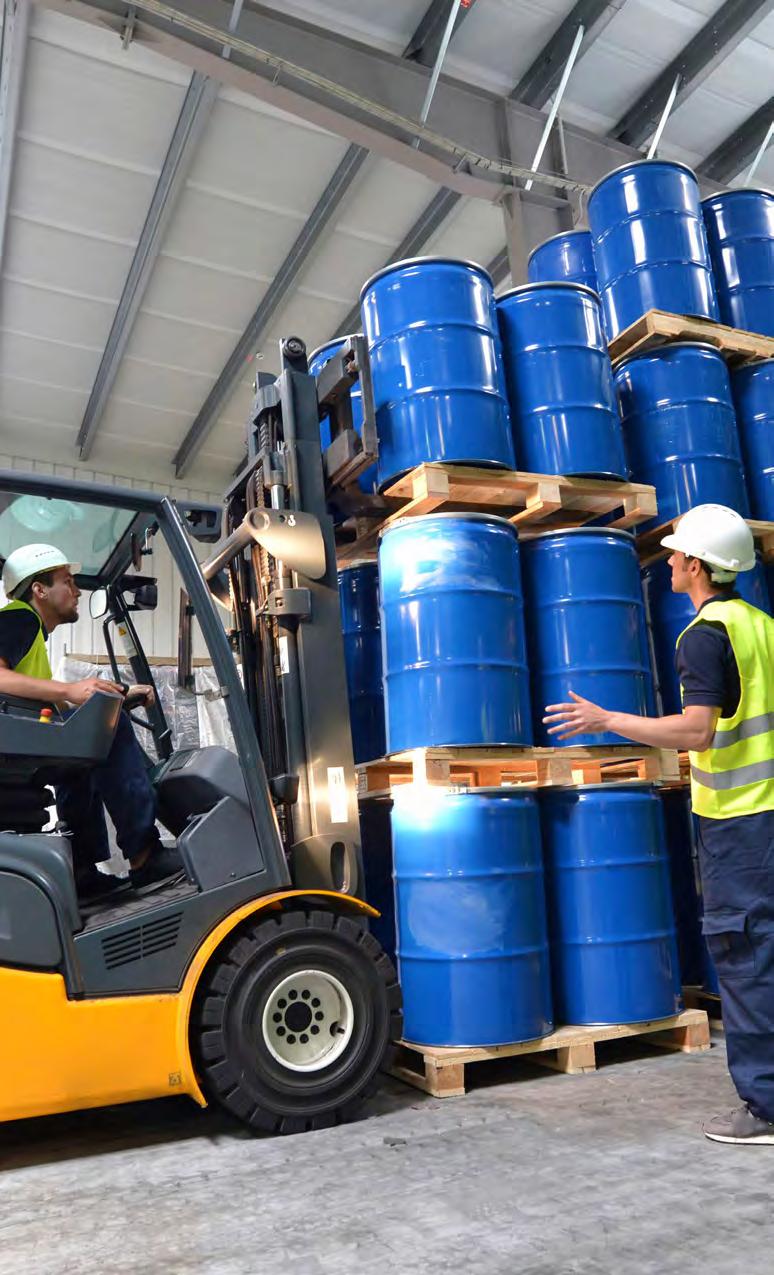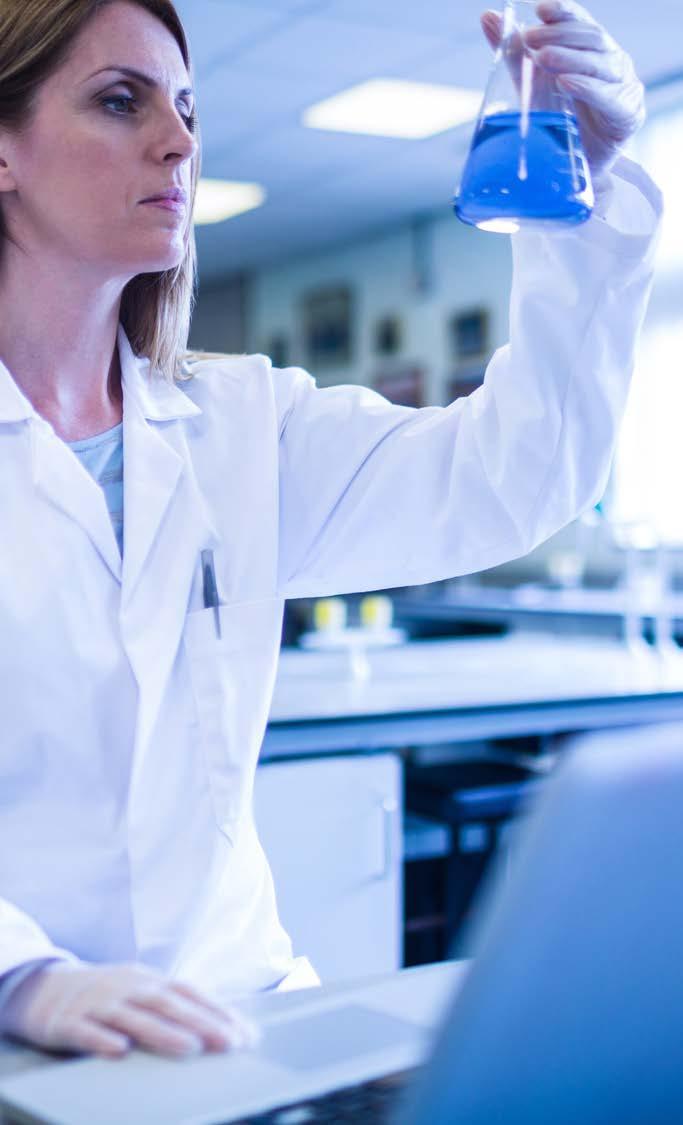Strategies for Accelerating



The USA is currently the second-largest chemical producing nation after China, with over 13,500 chemical manufacturing facilities located across the country. And these facilities support a national employment infrastructure.
But while economic confidence is strong, chemical manufacturers have an issue to address. One that needs urgent attention.
Global targets to reach net zero emissions by 2050 are putting pressure on the chemical industry to reduce emissions and adopt more sustainable business practices. And many chemical manufacturers are ready to embrace change.
According to new Aptean research, 1 in 4 chemical manufacturing companies want to reduce their waste output this year, while a further quarter are prioritizing sustainability in their 2022 business development strategy. But where is the best place to start?
To help your organization enhance its eco-credentials and contribute to climate initiatives, Aptean has identified three strategies for accelerating sustainability in chemical manufacturing.

There's a reason why the chemical industry is under the microscope in the global drive for net zero emissions: it's the world's third-largest industrial source of greenhouse gasses, and chemicals are embedded in more than 96% of manufactured goods.
But to clean up the sector's reputation and create a platform for sustainable innovation, there are two critical problems that chemical manufacturers need to address.
The first is reliance on fossil fuels.
Most chemical companies use non-renewable feedstocks in manufacturing – mainly shale gas in the USA. While shale gas is abundant and easily accessible in North America, making it cost-effective, it's not a sustainable resource like biofuel.
Manufacturers need to make a major commitment to decarbonization in order to contribute to global sustainability targets. And achieving this will mean rethinking deeply established systems and processes.
“While many chemical companies have publicly declared their intention to become carbon-neutral by 2050, the challenge lies in the immediate future. Often, companies may need more clarity on the material impacts that their stated goals will have on their operations, markets and business valuation.” Deloitte
The second critical barrier to sustainability in chemical manufacturing is product composition.

Currently, one of the key revenue streams for chemical manufacturers is plastic. Single-use plastics account for a third of all polymer production, and up to 98% of US plastics are produced using virgin feedstocks – which make them particularly bad for the environment.
While plastic's durable, water-resistant properties make it an attractive material for manufacturing products, it's difficult to dispose of and potentially damaging to the environment. Although recycling rates are increasing, until recently, only 9% of the 6.3 billion tons of plastic waste generated was recycled.
Many chemical manufacturers are already reconsidering their production approach and making a conscious effort to use less plastic, particularly in the wake of consumer backlash. Global plastic reduction policies are accelerating this trend; for example, countries including Canada, China, India, EU countries and the UK have banned single-use plastic objects such as shopping bags and straws.
PwC
We've looked at some of the key problems chemical manufacturers face, but how do companies overcome them to increase business sustainability?
Through analyzing recent Aptean research, we've developed three strategies to help you move away from legacy products and processes towards a net zero manufacturing operation, embracing the circular economy.
Every industry needs radical change to solve a problem as big as global warming. However, the challenge is even more significant for chemical manufacturing companies because of the deep-rooted reliance on traditional infrastructures.
Aptean found that 4 in 10 organizations rely on outdated or unintegrated technologies, while 37% struggle to meet industry regulations and compliance in their current operational setup. But change is on the horizon.
Some manufacturers have already taken steps to automate key processes. Our survey found that organizations were most likely to have digitized the following areas:
› Calculating a formula or recipe (57%)
› Tracing ingredients (56%)
› Managing production (56%)
› Managing the supply chain (47%)
› Analyzing profit margin (46%)
However, targeted automation cannot deliver the end-to-end disruption needed to build new, more sustainable models. Instead, chemical companies should be looking at digital transformation holistically to create the interconnected infrastructure necessary to make sustainable manufacturing an everyday reality.
“Initial digitization efforts have focused on specific areas, such as supply chain and production, in order to improve the bottom line, rather than taking a more holistic approach that better prepares the industry for the future.”
PwC
Prioritizing digital transformation doesn't just make sense from an environmental perspective; it also delivers powerful commercial benefits. For example, 44% of manufacturing companies investing in automation say their business is prospering, compared to just 28% of digital laggards.
Our research also found that the chemical manufacturers are more committed to technology-driven change than other sectors. 30% of organizations have completed digital transformation projects – compared to the industry average of 24%.
However, digital transformation can only accelerate sustainability if new software integrates data for analysis and decision-making. And this is where many organizations are still struggling.

68% of the chemical manufacturers we surveyed said their data is currently too fragmented or siloed to use effectively. And 61% don’t trust the data insights generated by their existing technology stack.
Chemical companies are accustomed to dealing with large output volumes and need to adopt this same confidence with data. Deeper customer knowledge will prevent production overcapacity – a perennial problem in the tight-margin chemical manufacturing sector – to reduce waste at the same time as protecting profit margins.
Automation can make chemical manufacturing more sustainable in many ways, from optimizing asset performance and reducing overcapacity, to reducing waste and eliminating quality control errors. But sustainability isn't merely a technical goal.
To create a clear path to net zero emissions, chemical companies need to ensure that integrated data and enhanced processes enable manufacturing employees to make more sustainable business decisions. And this involves cultural and practical changes.
The skillsets needed to build a successful manufacturing operation are evolving. For example, many chemical manufacturers are replacing manual tasks with machinery and are looking to replace redundant factory floor roles with investment in digital skills and analytics.
Sustainable manufacturing will streamline the current workforce but make the talent that remains more valuable. And digital transformation is critical to supporting this shift.
64% of the chemical manufacturers we surveyed want to use technology to prevent knowledge loss as experienced employees leave the workforce, while 58% want to improve the hiring process using digital software.
“The transformed talent landscape likely requires chemical companies to adapt further. Changing demographics and skills requirements should draw a more diverse workforce to chemical companies than ever before.” PwC
Identifying opportunities to work more sustainably isn't the sole responsibility of new recruits. Chemical manufacturers need to analyze current available skills to understand how reskilling and retraining existing employees can evolve their roles.

58% of chemical manufacturers are already responding to this challenge and are planning to audit their employee skills this year.
Upskilling your workforce will help existing staff to make more sustainable decisions. Plus, it will increase people's ability to work flexibly, sharing knowledge and skills to solve problems and improve practices.
In fact, 4 in 10 chemical manufacturers that have invested in smart technologies are already seeing an employee productivity improvement.
By embedding sustainability in company culture, environmental, social, and governance (ESG) goals are more than a paper target. They're a meaningful ambition throughout your entire organization, and everybody is working together to achieve them. And professionals who understand their employer's commitment to sustainable practices have higher levels of commitment, reducing the cost of recruitment.
“Manufacturers with a high employee turnover are less likely to implement successful sustainability plans.”
North Carolina State University
While chemical manufacturers are more likely to have completed digital transformation projects than companies in other sectors, there's still room to expand your sustainable change strategy and put greater focus on innovation.
Commodity chemicals manufacturers in particular are used to producing large product volumes for major customers in a continuously running operation. In this always-on environment, it's hard to find the mindset and resources to prioritize research and development.
However, the pandemic showed us that necessity is the mother of invention. As a result, in 2020/2021, we saw many chemical manufacturers pivoting their business into segments such as hand sanitizer, disinfectant and pharmaceutical production to counteract declines in other core business areas.
The challenge is putting the resources and infrastructure in place to maintain this spirit of innovation long-term.
At the moment, chemical manufacturing is reliant on privately funded R&D, but innovation spending is not keeping pace with capital expenditures. However, our research revealed a clear commercial need for greater investment: 39% of the chemical manufacturers admit they find securing new business a significant challenge, while 4 in 10 are looking to expand into new markets to drive future revenue.
“In 2018/2019, the top 50 US chemical companies increased capital expenditures by 2.9% but reduced research and development spending by 5.1%.”
Magazine
In addition to developing new processes and driving market expansion, a greater focus on innovation will give chemical manufacturers the confidence to invest in sustainable technologies.

We're already seeing industry-leading chemical manufacturers investing in carbon capture and utilization (CCU), steam cracker electrification, chemical recycling, green hydrogen, carbon capture and storage (CCS) and robotics. In fact, 58% of the chemical manufacturers who participated in our research study want robots to take over their employees' dangerous and high-risk tasks.
Manufacturers are also getting involved with initiatives like the BASF ChemCycling project and the Alliance to End Plastic Waste to develop their environmental credentials.
And the fact that market leaders are investing in new digital resources and forming strategic alliances means the bar on sustainable production is continually rising. Chemical companies that don't prioritize R&D may save money in the short term, but will increase the gap to industry front-runners in the longer term. Technology is facilitating the future of sustainable chemical manufacturing.
“If chemical companies fall behind in the race to deliver more innovation on more fronts, they may miss tomorrow’s major growth opportunities.” Accenture
Hammond Group, Inc. is a specialty chemical company enabling lead-acid chemistry for advanced storage, with manufacturing operations in the US, UK and Malaysia. Its customers span multiple industries including automotive, industrial and renewable energy storage battery manufacturing.
When the company wanted to increase its focus on customer innovation, Hammond Group invested in Aptean Chemical ERP to give personnel crucial insights into what was happening across its worldwide business.
Within 12 months of implementing Aptean Chemical ERP, Hammond Group reduced its IT costs by 39% while increasing the consistency of its quality control checks and automating product compliance requirements.
info@aptean.com
Chemical ERP demo
www.aptean.com
“I can exceed my customers’ expectations now. With the Aptean Chemical ERP, I have all the information that I need to provide my customers with the customer service and the technical service that they deserve. It allows us to be in the front of technology, and our customers see that.”
Gerry Kaoukis, IT Director, Hammond Group
Aptean and B2B International surveyed 275 North American discrete and process manufacturers in October 2021.
B2B International is a global, full-service market research firm specializing in researching B2B markets. Helping clients achieve their business goals by making smarter decisions driven by insights.
Resources referenced in this report
https://www.americanchemistry.com/chemistry-in-america/data-industry-statistics/resources/2020guide-to-the-business-of-chemistry
https://www2.deloitte.com/us/en/pages/energy-and-resources/articles/chemical-industry-outlook.html https://www.pwc.com/gx/en/ceo-survey/2020/trends/chemicals-trends-2020.pdf https://www.tandfonline.com/doi/full/10.1080/00139157.2021.1979857
https://www.accenture.com/us-en/insights/chemicals/chemical-growth-and-innovation
Contact us at info@aptean.com or visit www.aptean.com.
Aptean is one of the world’s leading providers of purpose-built, industry-specific software that helps manufacturers and distributors effectively run and grow their businesses. With both cloud and on-premise deployment options, Aptean’s products, services and unmatched expertise help businesses of all sizes to be Ready for What’s Next, Now®. Aptean is headquartered in Alpharetta, Georgia and has offices in North America, Europe and Asia-Pacific.
To learn more about Aptean and the markets we serve, visit www.aptean.com.
reserved.